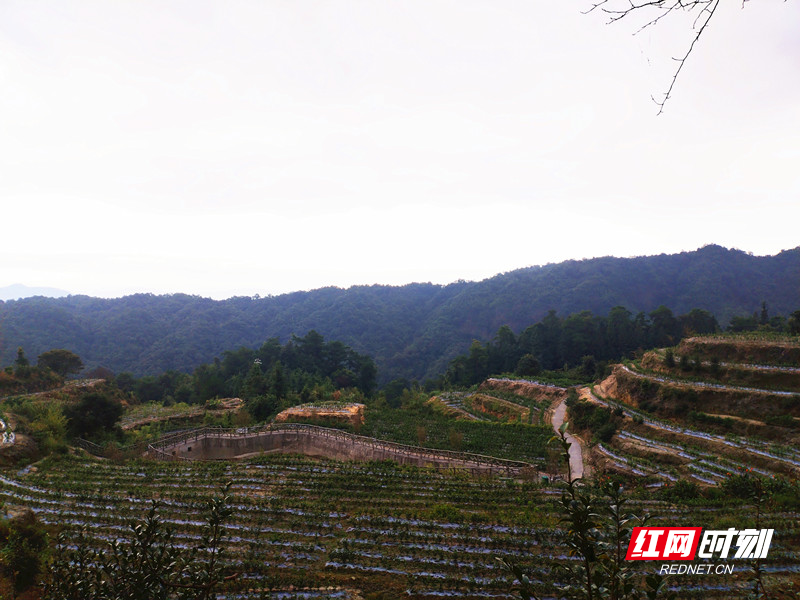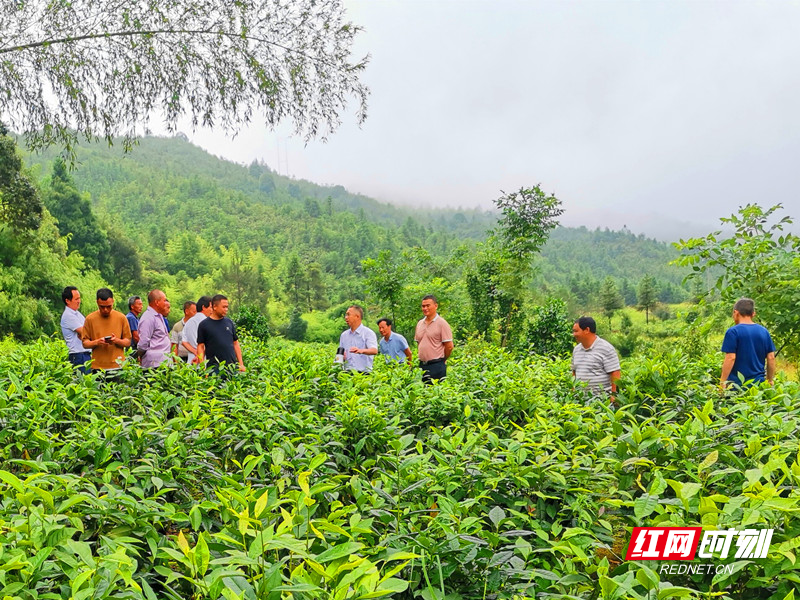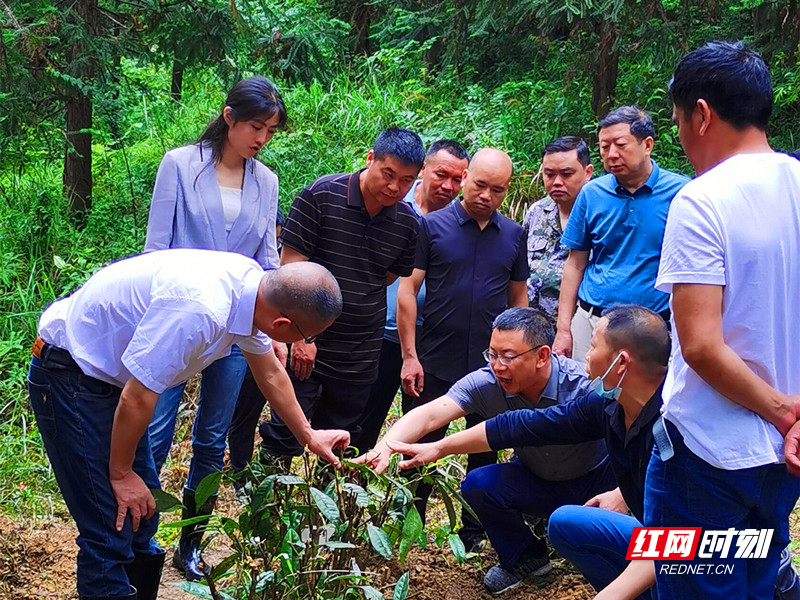Technology empowers development of Baimao Tea
2023-12-14
People were busy weeding and fertilizing in terraced tea fields of Jiulong Village in Jiulong River National Forest Park, Chenzhou City.

Liu Kailiang, Party secretary of Jiulong Village, said that the village has established a professional cooperative for Baimao tea with more than 500 mu (about 33.33 hectares) and an annual output value of nearly 2 million yuan.
At present, the village is promoting rural revitalization based on a new integrated development of tea industry, Yao village, homestay inns and wellness, and ecological tourism.
As a rare and precious wild tea with large and hairy leaves in China, Rucheng Baimao Tea is also one of the four characteristic and rare local tea germplasm resources in Hunan, with a long history.
The “Rucheng Bai Silver Needle” and “Rucheng Silver Pekoe” have won several gold awards like the national “New Technology& Product” gold award. They have also been rated as five-star quality tea standards by the China Tea Science Society, and certified as the national geographical indication certification trademark and agricultural product geographical indication registration product.

The Jiulong River primeval secondary forest and the mountainous forest area near Landong Village in Sanjiangkou Town have a superior climate, environment, and ecology, making it the origin of wild Rucheng Baimao Tea.
“Baimao tea is rare and precious, and I also wanted to develop it into a pillarindustry that can enrich the people. However, growing tea and making tea both rely on technology, and we lacked knowledge about it,” said Liu Kailiang.
In recent years, Rucheng County has made efforts to develop the Baimao tea industry to increase income for the people, which has been listed as a key priority.
The county has continued to improve mechanisms for variety protection and breeding as well as brand cultivation and development by making industry development plan and establishing a Baimao tea public brand service center.
In terms of policy support, financial institutions are actively encouraged to provide credit support for tea farmers and enterprises, and various industrial entities and social capital are guided to develop the Baimao tea industry.

In order to strengthen the support from scientific and technological innovation, Rucheng County has established long-term and stable strategic cooperation relationships with research institutes of Hunan Academy of Agricultural Sciences, Hunan Agricultural University, and Hunan Vegetable Research Institute. It has built an industry-university-research platform, and carried out research on topics such as rapid propagation technology, high-yield cultivation regulations, variety selection, ecological environment analysis, and processing technology innovation to solve various technical problems.
“At present, we are building 6 standardized seedling bases and have successfully cultivated 56 excellent strains of Rucheng Baimao Tea. After selective cultivation again, we can organize villagers to plant them.” Thanks to the assistance of scientific and technological service groups at all levels, Li Zhiguo, head of Rucheng County Mucaoren Tea Industry Company, has become a “local expert” in tea planting.
In Jiulong Village, Deng Houqin, a technology expert at Hunan Agricultural University, has led teams several times to provide on-site guidance and assistance at the 200-mu (about 13.33 hectares) Baimao tea high-standard planting demonstration base and the tea-tourism leisure integration base.
Villagers have mastered various techniques such as low-yield reforming, seedling cultivation, and planting through hands-on guidance and face-to-face instruction. Meanwhile, on the white walls in the village are common sayings and songs composed of tea culture concepts, practical techniques for planting and management, etc.
In recent years, in order to enhance the brand value of Baimao tea and its market competitiveness, Rucheng County has continued efforts to support enterprises to strengthen quality control and new product R&D, as well as to improve the brand through various methods.
In the first half of this year, Rucheng County held cultural and tourism festivals such as the Baimao Tea Culture Festival and the Hantang Tea Tourism Culture Festival, which helped continuously increase the brands’ reputation and influence.
The industrial effects will promote entities of all types in the industrial chain to develop in groups.
In the workshop of Mucaoren Tea Industry Company, workers were making tea in an orderly manner at night.
“Due to its strong scientific and technological innovation capacity, the company has developed three varieties of Baimao tea, which are currently in short supply, and we can only increase production capacity by working overtime,” said Li Zhiguo, adding that in September this year, the Rucheng Baimao Tea selected for exhibition was awarded the demonstration brand of Hunan tea and the gold medal in the Hunan Cultural Tourism Products Competition. The tea sold well online and offline.
Relying on technological innovation and improved services, the development of Rucheng Baimao Tea industry is in full swing. So far, the county has planted 15,000 mu (1,000 hectares) of Baimao tea, with an annual processing output value exceeding 500 million yuan. In addition, it has 2 provincial-level leading enterprises in agricultural industrialization, 4 municipal-level leading enterprises, and 12 enterprises above designated size.




